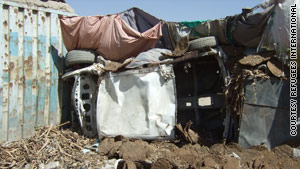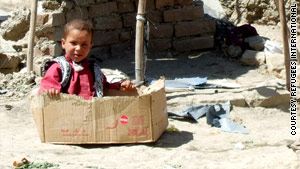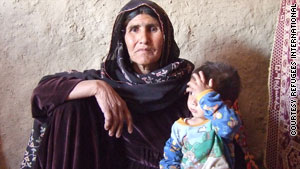 Africa
Africa
30 June 2011 Last updated at 00:37 GMT 
Noxolo Nkosana says she was attacked because she is lesbian
Lesbian South Africans are living in fear as rape and murder become a daily threat in the townships they call home.
Noxolo Nkosana, 23, is the latest victim of a series of violent attacks against lesbians. She was stabbed a stone's throw from her home in Crossroads township, Cape Town, as she returned from work one evening with her girlfriend.
The two men - one of whom lives in her community - started yelling insults.
"They were walking behind us. They just started swearing at me screaming: 'Hey you lesbian, you tomboy, we'll show you,'" Ms Nkosana tells the BBC.
Before she knew it a sharp knife had entered her back - two fast jabs, then she was on the ground. Half conscious, she felt the knife sink into her skin twice more.
"I was sure that they were going to kill me," she says.
Dying in silence Many lesbians have died in such attacks - 31 in the last 10 years, it is reported.
“Start Quote
Lesego Tlhwale Behind the MaskIt is a warped sense of entitlement and a need to protect their manhood”
In April, Noxolo Nogwaza was raped by eight men and murdered in KwaThema township near Johannesburg.
The 24-year-old's face and head were disfigured by stoning, and she was stabbed several times with broken glass. The attack on her is thought to have begun as a case of what is known as "corrective rape", in which men rape lesbians in what they see as an attempt to "correct" their sexual orientation.
The practice appears to be on the increase in South Africa.
More than 10 lesbians per week are raped or gang-raped in Cape Town alone, according to Luleki Sizwe, a charity which helps women who have been raped in the Western Cape.
Many of the cases are not reported because the victims are afraid that the police will laugh at them, or that their attackers will come after them, says Ndumie Funda, founder of Luleki Sizwe.
“Start Quote
Thulani Bhengu, 35When someone is a lesbian, it's like saying to us men that we are not good enough”
"Many of them just suffer in silence," she says.
Continue reading the main story "The cases people read about in the media are not even the tip of the iceberg. Lesbians are under attack in South Africa's townships every day."
Reports of police ridiculing rape victims abound in the gay community.
"Some policemen in the township mock you saying: 'How can you be raped by a man if you are not attracted to them?' They ask you to explain how the rape felt. It is humiliating," says Thando Sibiya, a lesbian from Soweto.
She says she knows two people who reported rapes but then dropped their cases because of their treatment by the police.
'Un-African' Some trace the root of the problem to pockets of traditional African society that have not accepted homosexuality - especially among women.
"African societies are still very patriarchal. Women are taught that they should marry men, anything outside of that is viewed as wrong," says Lesego Tlhwale from African gay rights group Behind the Mask.
"It is seen as un-African for two women to marry. Some men are threatened by this and then want to 'fix' it," she adds.
The Eudy Simelane case

- The practice of "corrective rape" made world headlines in 2008 when Eudy Simelane, a former South African international women's footballer was gang-raped, beaten and stabbed 25 times in the face, chest and legs in KwaThema township.
- One of four alleged attackers pleaded guilty to rape and murder and was sentenced to 32 years in jail. Another pleaded not guilty, but was convicted and given a life sentence. Two others were acquitted.
She notes that the women who have been killed in South Africa so far have been described as "butch lesbians" - a slang term used to describe lesbians with a masculine or manly appearance.
"They are threatened by these kinds of lesbians in particular. They say they are stealing their girlfriends. It is a warped sense of entitlement and a need to protect their manhood." South Africa is the only African country to have legalised homosexual marriage, and one of only 10 in the world. The constitution specifically forbids discrimination on the grounds of sexual orientation.
But on the ground, prejudice remains common.
On the streets of Johannesburg, it is easy to find men who support the idea of "corrective rape".
"When someone is a lesbian, it's like saying to us men that we are not good enough," Thulani Bhengu, 35, tells the BBC.
Very few cases of rape against lesbians have ever resulted in convictions.
No-one knows how many of the more than 50,000 cases of rape reported in South Africa each year are committed against gay women, because the victim's sexual orientation is not recorded.
Defiance But after the murder of Ms Nogwaza - and a petition signed by 170,000 people around the world calling for an end to "corrective rape" - the justice department has begun to listen.
It is in the process of setting up a team to develop a strategy for tackling hate crimes against gay people, and is considering introducing heavier sentences for offences where the victim's sexual orientation is a factor in the crime.
Ms Nkosana is afraid that she might be attacked again, but says she will not be "forced back in the closet" - made to pretend that she is a heterosexual.
"They made me a victim in my own neighbourhood but I won't let them win," she says. "They can't stop me from being who I am."
But despite her defiant attitude, Ms Tlhwale says many South African lesbians are deeply worried.
"Everyone is scared," she says. "We have seen an increase in attacks against lesbians in recent months. Everyone we speak to is afraid that they might be next."












